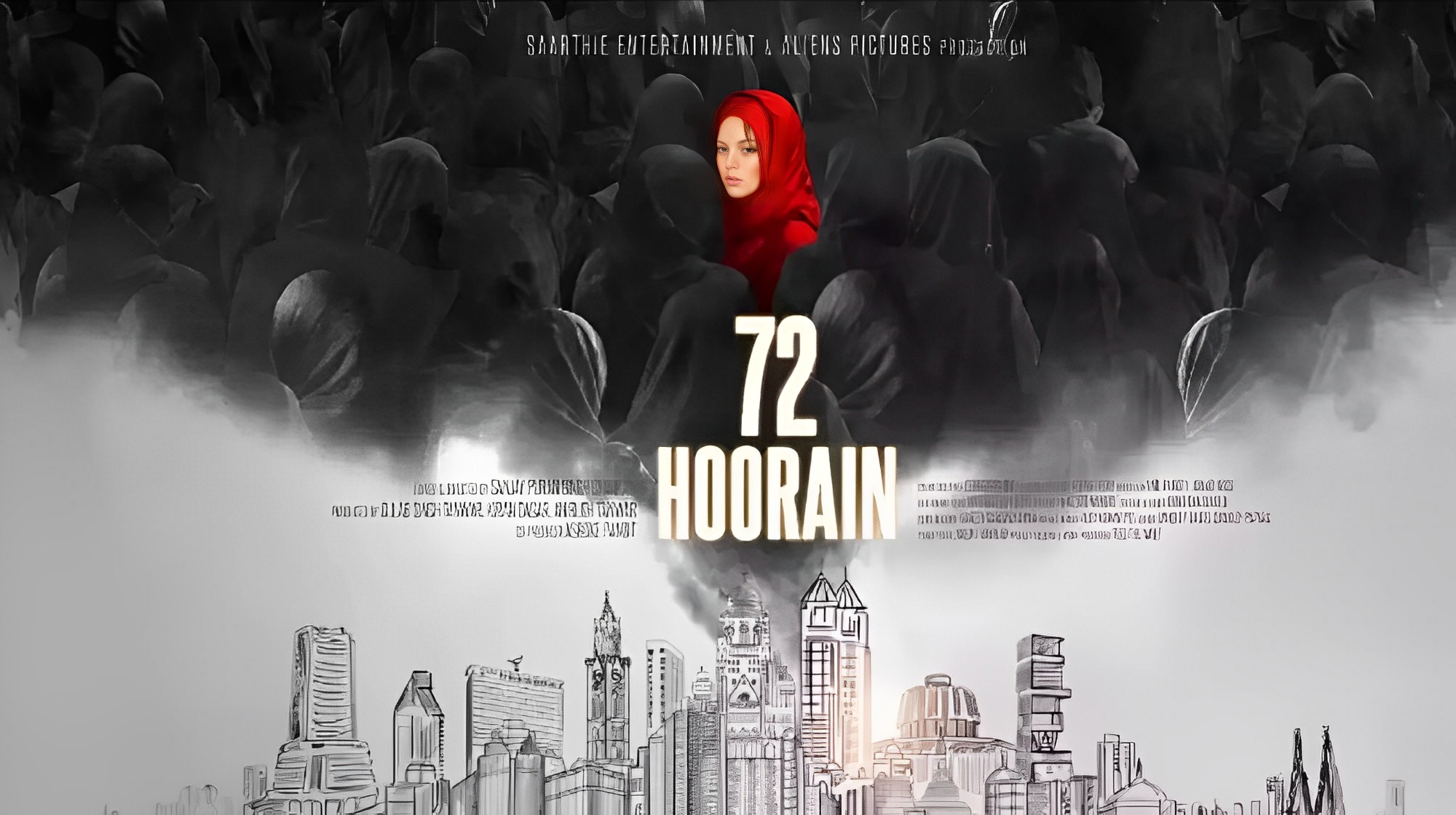The power of cinema lies in its ability to entertain, inspire, and educate audiences. However, there are instances when films exploit this power to perpetuate harmful stereotypes and promote discrimination against certain communities. 72 Hoorain, directed by Ashoke Pandit, is one such film that warrants critical analysis.
By associating the concept of paradise and terrorism with Islam, the film not only misrepresents a religious belief but also contributes to a larger issue of anti-Muslim sentiment in Indian cinema.
This critique aims to shed light on the complexity of the issue, going beyond a single film and addressing the broader problem of negative portrayals of Muslims in Indian cinema.
Have a look,
Misrepresentation of Islam and Promoting Stereotypes
One of the primary concerns with 72 Hoorain is its portrayal of Islam and the erroneous linking of a religious concept with terrorism. Terrorism has no religion, and it is crucial to emphasize that the actions of a few individuals cannot define an entire religious community.
By perpetuating this connection, the film not only fosters misunderstandings but also fuels prejudices against Muslims. It is essential to separate the actions of extremists from the broader Muslim population, who overwhelmingly reject terrorism and advocate for peace.
A Multifaceted Issue
While ’72 Hoorain’ may be a prominent example, it is crucial to recognize that this film is not an isolated incident. Indian cinema has had a history of producing movies that depict Muslims in a negative light.
Films like Kerala Story, Padmaavat, Phantom, and Uri: The Surgical Strike have all contributed to the portrayal of Muslims as barbaric individuals or perpetrators of violence. Such portrayals perpetuate harmful stereotypes, reinforce prejudice, and deepen divisions among communities.
Director’s Background and Its Impact
Understanding the director’s background, in this case, Ashoke Pandit being a Kashmiri Pandit, provides context but does not absolve the film from criticism.
While it is essential to acknowledge the historical context and the displacement faced by Kashmiri Pandits, it is equally important to approach filmmaking with sensitivity and avoid perpetuating stereotypes or promoting discrimination against any community.
In this case, the film’s content has the potential to further stigmatize and marginalize Muslims, exacerbating existing social tensions.
Visit the celebrity portal to know more about your favorite stars.











Seems the jihadis here who live to comment on women’s bodies have nothing to say about this film.